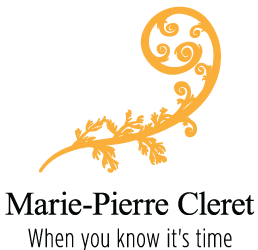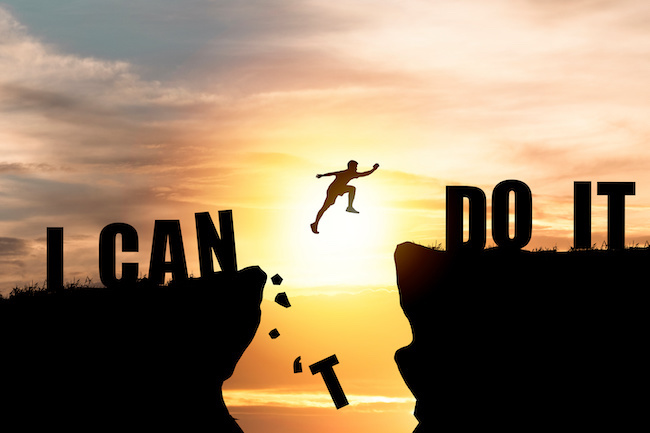A piece I address with almost every client I meet in my work as a psychotherapist is the existence, intensity and impact of their inner critic.
By that, I mean a critical internal voice that constantly finds fault with and raises doubts about the person’s:
- worth
- lovableness
- intelligence
- ability to succeed
- competence
- attractiveness and
- value
in every conceivable area of their life. It seems that no matter what people bring to my office about their everyday experience – relationship or workplace conflicts, career challenges and dilemmas, creativity blocks, ethical dilemmas, self-esteem/self-doubt, trauma, body issues, accidents, money, sexuality – the inner critic plays a part, usually to increase the person’s suffering.
For many people I meet, this internal voice, or ‘part’, seems to act as a ready-made reference they unconsciously turn to in deciding what they think about themselves, what they’re capable of, what kind of person they are (especially regarding faults and negative attributes they think they have), what they think others think about them, what their creative work is worth, and what the future has in store for them.
With its negativity bias and harsh, critical tone, it acts as a massive brake, standing in the way of them taking positive initiatives in life and work (for fear of failing), discouraging them from persevering with projects (framing learning challenges as evidence of personal deficit), inhibiting their creativity (convincing themselves they have none), making them avoid connecting with others (thinking others don’t like them or will think they’re not interesting or appealing enough), and stopping them from leaving situations where they’re treated badly at home and work (thinking they deserve it or will not find anything better).
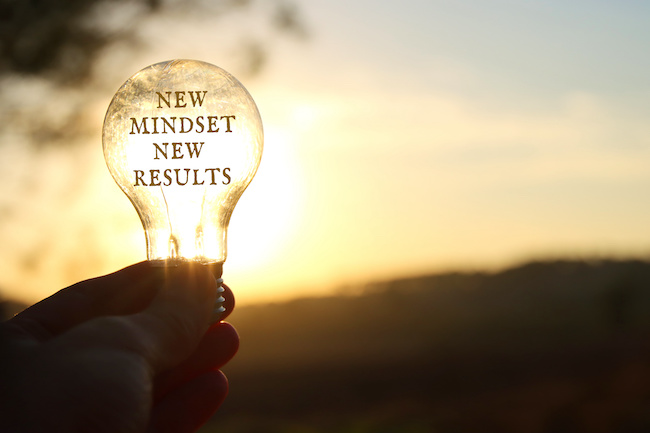
This voice assumes the worst. It assumes the worst outcomes for us and others, and always foresees a bleak future. If something goes wrong, it blames us. It makes any and every new endeavour scarier, more fraught, more difficult than it might otherwise be if we didn’t have to constantly negotiate with its insistent, negative presence and its predictions of failure.
This voice assumes the worst. It assumes the worst outcomes for us and others, and always foresees a bleak future. If something goes wrong, it blames us. It makes any and every new endeavour scarier, more fraught, more difficult than it might otherwise be if we didn’t have to constantly negotiate with its insistent, negative presence and its predictions of failure.
To make matters worse, this voice speaks with an authority that feels absolute and true. In the face of its utterly convincing tone, and the artificially pumped-up sense of urgency it often adds to our deliberations, many of us fail to take the time to question whether this is true reflective thought and whether we’re seeing reality clearly and accurately when we see ourselves, and the world, through its eyes. We take its poisonous offerings as valid reflections—as ‘fact’. In doing so, we fail to see there’s often little that’s grounded in truly rational, ethical, factual, contextual thinking.
One of the strategies that can be useful in beginning to loosen the grip this voice has on us is to consider: What if ‘feels real’ isn’t necessarily true now? One of my teachers, Michael Yapko, used to say: ‘You can be very, very sure, and be very, very wrong.’
It seems worthwhile to look at this phenomenon in greater depth to assist us to see beyond the absolute and deterministic claims this critical voice makes about us, our relationships, how others perceive us, how the world works, and what the future holds for us. This is a crucial first step to open up the idea that what this voice feeds us about ourselves and the world may not, in fact, be true. Or at least not in the extreme form it claims. In doing so, we can begin to find our way past this corrosive and demoralising brainwashing and start to develop new ideas about ourselves and what’s possible for us.
Inner Critic (IC) and interim Operating System (iOS) – What do the terms refer to?
I use the terms Inner Critic (IC) and interim Operating System (iOS) to highlight different aspects of this phenomenon.
Let’s take a look at what these terms refer to.

The Inner Critic (IC)
IC describes a voice inside our minds which is internal, constant, and fixed. And, as the label suggests, it criticises and focuses on the negative. It sabotages and demoralises us. It’s seldom silent. Like a default setting, it never changes with new data. We could say that its core motto is: ‘Don’t confuse me with the facts, I’ve made up my mind.’
Brain researchers have found that our brains have what they call a ‘default mode network’. This is a process our minds engage in when not otherwise occupied. It reviews events or moments in our day/life/relational engagements/actions and considers them from the standpoint of what ‘should’ or ‘should not’ have happened. It has a bias for the negative and can go on indefinitely in its rumination if left unchecked.
It’s thought to have some survival value in making us reflect on and learn from our experiences, to learn from mistakes and consider better ways of operating. Left unchecked, however, it can become the terrible conviction that we are hopeless, worthless, useless, and bring us to a standstill — the black dog of depression. The IC takes the negativity bias of the brain, along with its confirmation bias, to the extreme.
Instead of engaging in truly reflective thought that considers each new moment/situation/ context afresh, the IC is used by many of us as a shortcut, a ready-made guide for many parts of our lives, to assess ourselves, our actions, and our relationships. In doing so, it significantly impoverishes every aspect of life because its starting position remains the same: we can’t, we’re wrong, we’ll mess it up, we’ll get it wrong, we’re stupid/clumsy, we’re not creative/smart/loveable/capable, we have nothing of interest to offer. In other words: we’re limited in some way, based on whatever we learned ot think about ourselves and life in the past.
The IC creates an immense added weight to anything we might endeavour in life. It can make it hard to choose to try anything new at all. Given that its original ‘function’ was to train us to survive in and adapt to our original context, that makes sense. It doesn’t serve us to deviate from the established norms for how to human that are prescribed in the specific context we first arrive in. It makes seeing utility in learning, trying something new, taking a relational risk and reaching out, creating anything, instigating anything, seem unnecessarily risky if not pointless. If you’ve heard of fixed and growth mindsets (Carol Dweck) , you may recognise this as a fixed mindset – cognitive rigidity on steroids. The opposite of a growth mindset. With no room for learning or growth, this is the very definition of a closed system.
The IC isn’t able to be reasoned with or modified through argument or fact. It doesn’t offer its contributions as perspectives—it offers them as fact. The felt sense experience of it (‘feels real, must be true’) at a visceral level makes it so convincing that it’s impossible to reason with. Its nature makes it impervious to reason.
The iOS – interim Operating System
The term iOS, to me, implies something that’s provisional. I’ve borrowed the term OS from technology terms to describe an operating system inside our mind which processes information. Identifying it as an interim OS suggests that, in time, an alternative, more up-to-date, and better functioning version might be accessible and able to be put to good use in the interests of the person.
By using the metaphor of an operating system, we open up possibilities. An OS operates in rule-governed sets of interactions, like a mathematical algorithm. These rules process what we experience as data in our everyday life, make determinations and predictions about what is useful, significant, relevant, and store this data for later application. By its nature, an OS interfaces between the person and the world.
Examine the rules, change the rules, change the outcomes.
So, where does the IC or iOS come from?
The roots of the IC, or iOS, lie in our earliest years. As humans, 70% of our brain cells develop after birth. This is to enable maximum adaptability to whatever environment and circumstances we’re born into. Our brain develops in cycles and rhythms taking between 26 and 30 years to grow fully into its adult, mature capacity.
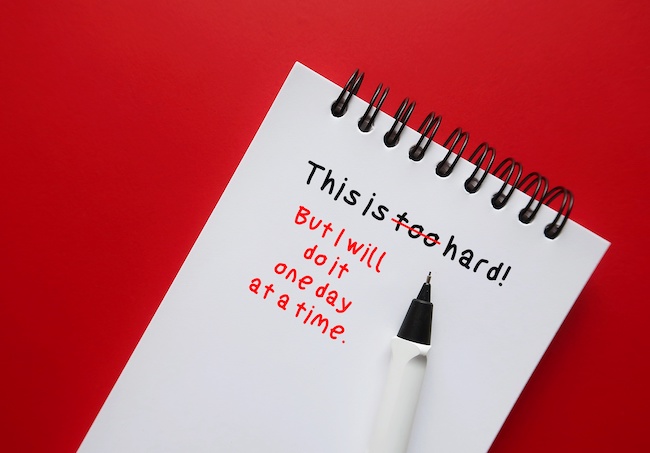
Initially, the right side of our brain develops with a big focus on emotions and perception. Then a concentrated burst of growth occurs on the left side, around the time language starts. It takes about a year for us to begin to develop language. Initially, that language is very basic. Then there’s another burst of right-brain growth, before another big burst of left-brain construction in adolescence into young adulthood. Analytical thinking, critical reasoning, moral reasoning come into their own in the years from 14 to 26 years and beyond.
What this all means is that we enter this world, into our bodies, our families, our communities, with very young, undeveloped minds. Initially, we mostly sense, feel, and are impacted by impressions on our bodily senses. We take in the world uncritically: it is as it is, and it is as we are taught to see it by others in our lives through their actions and words.
How we learn to think about ourselves (who we are) initially arises in relationships — through what’s reflected to us about ourselves and our experiences by others, usually, our caregivers. We first come to see ourselves in and through the gaze of others: how they receive, treat and respond to us, and then through what they tell us about ourselves and how they perceive us. Those first experiences leave lasting impressions, many of which last a lifetime. When we draw on the iOS, these early impressions have the felt sense status of ‘fact’ inside our inner world; they become the foundations through which we see ourselves, the world, relationships, what is possible, and what is not possible for us.
In addition, as baby mammals, we’re totally dependent. As little life forms, we know at a gut/biological survival level that we need our relationships with our caregivers to work if we are to survive. Given we cannot fend for ourselves for the first few years of life, we are all born with a biological imperative that predisposes us to make those relationships work. At any cost. Survival tells us we must fit in with the pack we’ve landed in, no matter what. Staying in the pack (our family) and continuing to be looked after by the older pack members depends on us demonstrating ourselves as ‘good’ (read ‘compliant’) pack members who conform to pack rules about how to be a human in the particular pack we’ve landed in.
And because it takes a long time (26+ years) for our brain to develop its full capacity to reason, to analyse, and to develop adult moral reasoning, we spend many years not yet equipped to understand the world and how to deal with it. We need others to teach us how to human in the world if we’re to survive. This is how we end up developing a rudimentary survival manual/guide for ‘how to human’. It’s elaborated on and internalised very quickly during our early years, and ends up becoming an unconscious field guide we draw upon to live our lives. This is the iOS.
So, our earliest learnings about becoming human in our particular environment involve absorbing all sorts of messages, rules, prohibitions, entitlements, outlooks about ourselves and others, on our relationships, the world, what’s possible, what’s obligatory, and what’s forbidden. We absorb these directly from our caregivers and from the people in our world. We take in this information verbally (what they say), through observation (what they do), how we see them behave in relationships, and how they treat us. We observe them going about being humans in their own lives, as well as through their meta-comments about ‘how to human’ and how they convey/prescribe/enforce those expectations with us.
By taking in, learning, and following these constructs, rules, prescriptions, permissions, prohibitions and predictions, and applying them, the small person stands a much better chance to be cared for by its surrounding adults, of making it to adulthood and becoming a successful member of the tribe.
From imprint to complex thought?
As infants, before we develop language, we register our caregivers and other adults around us as all-powerful beings.
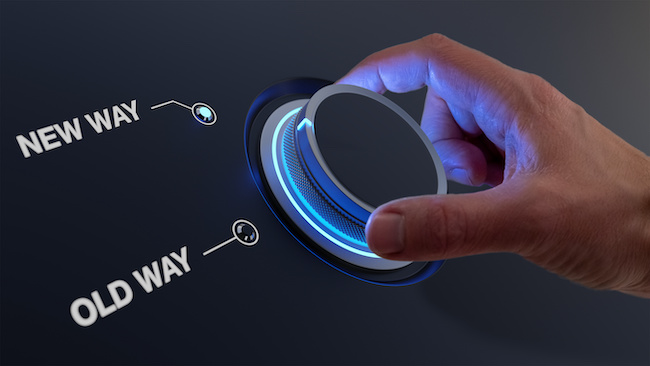
Their joy and delight (if it’s there), their pain, their fear, their fury, their presence, what they value, what they despise or abhor, their absence, all register in us through impressions, ‘imprints’. Initially, these feel pleasant or unpleasant. We feel good or bad. Safe or unsafe. This intensity of experience adds to the salience of what we learn.
Later, as our brain develops, we come to think of ourselves as separate beings who are different from others. This happens through our capacity to develop conscious awareness:
- through our lived experience
- through our observations
- through our capacity to reflect on our differences, and
- being able to do so through language.
Once we learn words, language adds a new dimension of complexity to our experience and how we apprehend the world. We begin to add the sense that we are ‘good’ or ‘bad’. This is based on what we observe of our caregivers, what they tell us about ourselves and others, how they see us, how they link their treatment of us with how they see us, what they praise and reward us for, what they discourage or punish, and how they judge our actions. We also draw conclusions about ourselves, others, and the world based on these experiences, and we gradually make decisions about how to be, and what we can and cannot do in life. These conclusions and decisions, if left unexamined and not updated, become the fixed template or script many of us consult and follow (largely unconsciously) for the rest of our lives.
The ‘felt sense’ of one being good or bad is intimately linked to the degree to which we feel secure in our membership of the pack (family, tribe, culture). This is inextricably linked to the degree to which our internal iOS defines us as good or bad, which also links to the degree to which we adhere to our pack’s rules for ‘how to human’. It’s also profoundly linked to our sense of shame and dread when we step outside of our tribe’s prescribed boundaries and our terror of being found out if we transgress. For children in ancient times, and still in many places today, to step outside of the rules means a real threat to survival. When we are stuck in using our iOS, we tend to feel like little kids in a big, scary world. We are more easily overwhelmed, feel fearful, and more likely to look to powerful others to tell us what to do, and we judge ourselves (and others) according to our earlier life conditioning.
As the iOS template becomes more elaborate, this internal ‘map’ becomes the lifelong guide that we consult through life in making decisions about ourselves, our actions, relationships and life. It acts as a template for what we choose to explore, what we avoid, who we affiliate with, who we avoid or fear, and we replicate in large part what we were taught.
While this acts as a useful shortcut in life, saving us time and effort, we are not stopping to assess each new situation afresh and make choices based on the actual facts and information available. If we only ever use the iOS to guide ourselves through life, we’re condemned to a life with limited possibility for real change, growth or evolution. In effect, we internalise a sense of ourselves, a sense of others and relationships, of the world, of what’s possible for us.
Unless we’ve deliberately chosen to reflect on this map – its accuracy, and its relevance to our current circumstances and context – and revised it, we’re likely to replicate it and pass it on, if we have children.
Enter the aOS – the adult Operating System
As stated earlier, brain development occurs over many years, right into adulthood. Our adult brain does not become fully functional until our mid to late 20s.
By the time we are 26 to 30 years old, along with the capacity to process simple emotions, simple thinking, and survival responses (fight, flight, freeze, appease), our brain will have developed sophisticated capacities for complex thinking (analytical thinking, moral reasoning, taking perspective, grasping complexity), and complex emotions (compassion, frustration, tolerance, dealing with competing desires and priorities).
This kind of brain has a very different way of apprehending the world it lives in. Rather than relying on seeing things in black and white, either/or, should/should not, good and bad terms in the manner of the rules, prescriptions and prohibitions of the iOS, this more developed brain is capable of encountering the world and our place in it in a very different way.
For a start, the aOS allows us the possibility of examining ourselves, others, and the world we live in, and the possibility of taking in new information. In doing so, we can revise our ideas about everything and develop new perspectives and new meanings.
When we use this part of our mind, we have a chance to access the beginner’s mind. We can be aware of the assumptions that guide and sometimes blind us in our way of being and how we move in the world. This part of our mind opens up the question: ‘Does it have to be this way?’ This enables us to explore a whole new universe where new information can be perceived and explored.
In using the aOS, we begin to see the world as a complex system—one where many different parts are seen to influence, interact with and impact one another. By definition, the aOS is a learning system, constantly holding open the possibility of change, revision and growth. Unlike the iOS, which presents us with a rigidly narrow, fixed, and prescriptive set of parameters to define the world and our place in it, the aOS doesn’t assume much fixity about anything, much less ourselves. The aOS enables us to apprehend the world from a broad perspective that is open to discovery, learning and change.
The aOS enables us to make educated guesses and see new connections, rather than coming to rigid conclusions. It takes into account the context for whatever is happening, recognising that context plays a huge part in determining the potential meaning, purpose, outcome, value, and interpretation of anything we experience. It always recognises that context changes. The aOS doesn’t get stuck in deterministic thinking. There are possibilities and options. Change the context, change the variables, change the relationships, change the outcome.
When we access the aOS in reflecting about ourselves, what is possible for us and for our relationships with others and about the world, things are not predetermined. Instead, new possibilities truly come within our reach. We are less bound by the limitations of what we think we know at any one time. We know that just because things have been one way before doesn’t mean they have to stay one way. And just because we thought they were a certain way, doesn’t mean they are or were that way.
The aOS is also much better at staying steady in the face of uncertainty and ambiguity. Where the iOS associates uncertainty – the unknown – with danger, and so tries to control outcomes as much as possible, the aOS sees the unknown as just that. Unknown. The aOS reminds us that there are many times when we don’t know enough about something to form an opinion about it, to react to it, to make an informed decision. It enables us to hold a place for keeping an open mind that accepts the unknown as part of life, and tolerates this state of ambiguity and uncertainty without interpreting it as threat or danger.
This capacity to read something as simply new or unknown, rather than dangerous, means we are far better equipped to apprehend new aspects of ourselves and others, new circumstances, new relationships, new environments, new experiences in a spirit of curiosity, possibility, openness, exploration and discovery, rather than one of anticipated threat. Diversity, difference and novelty can then be experienced as reality revealing its richness to us over time, rather than something we should control, stop, and fear. Maturity is reflected in a growing capacity for adopting such an orientation towards ourselves, others, and to the world.
Drawing on the later developments in the brain – on our capacity for logical and complex thinking, moral reasoning, perspective-taking, assessing context, history and other factors, and our capacity to feel and process complex emotions such as compassion, grief, regret, remorse (to name some) – the aOS enables us to learn, to change, to understand other peoples’ perspectives and reactions, and hence it offers the possibility of repair and reconnection when conflict arises in relationships. As we practise dropping our assumptions that things are black or white, right or wrong, good or bad, or even fixed and binary, we open ourselves to prioritising relating over being ‘right’. We open ourselves to a world where we consider ‘both’ or ‘and’ which helps us to be more inclusive and accepting of diversity.
In effect, the aOS is what a growth mindset requires in order for us to develop and evolve beyond what we learned to think we know.
Recognising the state of play
Once we understand the existence of the iOS and the aOS, we are better equipped to learn how each influences and shapes our everyday thoughts, feelings, and choices, how we view ourselves, others, and the world we live in, and what options arise for us, depending on which system we are working from in the context we are in at the time.
When we are using our iOS to map our view of reality, we tend to work from more childlike, limited perspectives about what we think is possible, what’s permitted to us, and how others are liable to respond to us. In contrast, drawing on the aOS tends to open up adult options and possibilities, applying adult thinking, problem-solving and skills at looking at reality in complex, multi-factorial ways. This equips us better at dealing with a world that is full of ambiguity, paradox, uncertainty, and complexity.
As Alfred Korzybski (1931) wrote, we must remember that the map isn’t the territory. This reminds us to be alert for signs when we may have confused the two at times. Remembering that the map isn’t the territory enables us to detect when we might be inadvertently locked into either/or, rigidly prescriptive and deterministic, and often negative thinking that limits our options. Instead, can we see ourselves and the world as having a map that’s constructed within a certain frame, and then question whether this map is serving us, rather than unquestioningly accepting it? Can we access a different operating system to map the territory we find ourselves in in a different way? A way that more richly describes and accounts for the complexity we encounter in the world.
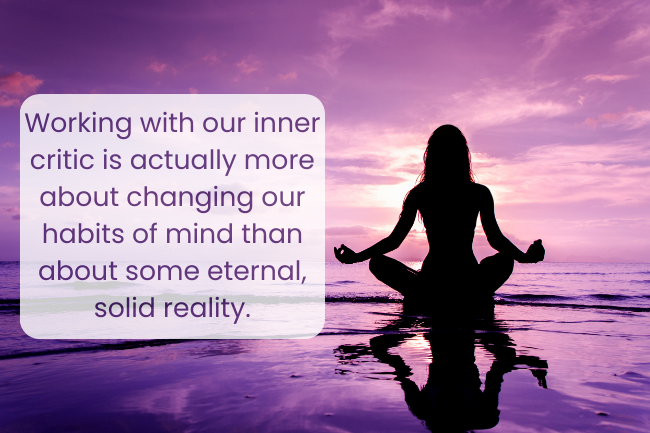
Identifying which OS we’re using
One way of testing which OS we are using to map reality is to ask ourselves—’If I were advising/mentoring someone I cared for and respected, who felt as I do, and was in the same situation I find myself in, how would I view them? How would I view the situation they were in? What would I say to them? What would I encourage them to do and why?’
These questions usually quickly reveal which operating system we’re using to map our reality. If there’s a significant gap between the map we’re using to map our own reality and how we would map reality for someone else who found themselves in an identical situation, this tells us we are likely to be caught up in the iOS. Once we realise this, it opens up the possibility of detaching ourselves from our current map, and consciously switching to using a more developed operating system (the aOS) to generate a richer map—one that enables us to consider ourselves, others, and life from a more mature, compassionate, inclusive, growth-oriented perspective.
From my perspective as a therapist, many of the difficulties we face each day either arise from, or are heavily determined by, the operating system we use to map ‘reality’ at the time.
Many of the personal limitations or relationship issues people raise with me in negotiating the complexity of adulthood arise in their seeing themselves or their relationships through the lens of the iOS. Once we identify this and help them shift from what I call ‘little kid thinking’ to ‘adult thinking’, adult options come within reach, making many seemingly unsolvable problems look very different.
Some things stop being experienced as problems altogether. New possibilities start to come into view in relation to what were previously fixed situations. People and situations that were read as threatening, wrong, unchangeable, overwhelming, or dangerous are seen as simply different. Mistakes and difference don’t make us or others necessarily bad. Learning, growth and change become options which are more exciting and relevant to creating a worthwhile life and future for everyone, than adhering to archaic rules and prescriptions that only served the interests of a few. Cultivating a perspective that actively tracks, questions and learns to skilfully choose which operating system to use to guide us through life can make a huge difference to our own and other peoples’ suffering. We learn to drop limiting beliefs, see things from different perspectives, react differently because we see things differently, and access the skills we need to live fulfilling, meaningful and satisfying lives. It also helps us to human better in the ways we live in our relationships, our communities, our ecology.
The world at a crossroads
Right now, it seems to me that we are at a crossroads. With all the chaos we see with geopolitical conflicts, conflicts over resources, climate change, environmental degradation, human rights, we see a widening divide between those pushing for a wider vision and those pushing for a return to ‘the good ole days’.
As I see it, we have two paths. We can embrace that we, the world we live in, the universe, are all evolving complex systems which, to survive as a species, will require us to cultivate our aOS with complexity and maturity. Or we can retreat back into a fictional world of an idealised, simpler time of childhood where rules were rules, things were black or white, right or wrong, and we took our direction from those in charge of the pack about how to human. We can rely on our iOS and attempt to squash all the complexity we have learned about over the past years back into these fixed categories.
If enough people see the critical importance of developing their aOS (learning how to develop a growth mindset and use our aOS) and mapping reality this way and supporting others to do the same, we will see very different outcomes in our stewardship of our world in the next few decades. The path we choose as humanity will, I believe, have the power to determine whether we survive as a species on this planet.
Reflection
You might consider an issue you’re wrestling with right now, one where you don’t feel good, can’t see a way forward, where you’re judging yourself harshly. Ask yourself:
- If you were to support someone you cared for and respected, would you look at them as harshly as you look at yourself? If not, how would you think about them?
- In helping this other person, how would you consider their situation? What factors would you take into account in assessing it?
- What advice would you give them if they sought your advice?
- Would this advice be the same advice you are giving yourself in your current circumstances? In what ways would your advice to them differ?
- If different to how you’re treating yourself and your own situation right now, would you be willing to start approaching yourself and your situation in the same way as to a person you cared for and respected?
- If you were to follow the advice in your situation that you’d give to this other person, how would you need to change how you see yourself? How would your attitude towards yourself change?
If you’d like some help in learning how to approach a challenging situation in your life right now, contact me.

